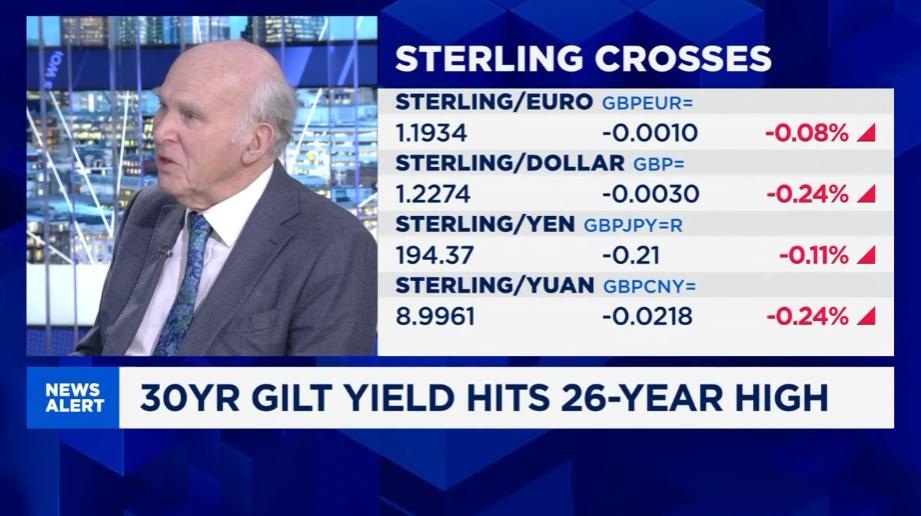
Recently, the former business secretary of the United Kingdom said that the United Kingdom faces a "slow growth trap", and it can be seen from the available data that the British government's borrowing costs are continuing to rise. The ripple effect is that public spending in the UK will shrink further and tax rates on the people will rise, while investor confidence in the UK will weaken and the pound will plummet.
The reason why Britain fell into this borrowing "trap" is not unfounded. Recent UK economic data released by the UK government showed that manufacturing activity continued to shrink and a decline in consumer confidence further deepened the market's pessimistic expectations about the economic outlook. Against this backdrop, investors tend to sell their currencies to avoid risks, which leads to a further rise in borrowing costs. The instability in global markets has also weighed on the pound, and investors' worries about the UK's future have increased, which has also contributed to higher borrowing costs, which have further pushed them higher.
And the collapse of the pound also reflects some problems to some extent. Since Brexit, the uncertainty of trade negotiations and the volatility of international relations have continued to erode investor confidence, which has affected the volatility of the pound exchange rate to some extent. At this time, the US economy has shown strong momentum in the international arena, and the expectation of interest rate hikes and positive economic data have attracted a large amount of capital into the US market, leading to the strengthening of the US dollar, which has affected the exchange rate of the pound to a certain extent. The British economy is facing multiple challenges such as high inflation, rising energy costs and a tight labor market, and is also facing external pressure from the international market such as the United States.
The UK's borrowing problems have had an impact on all fronts. First, the depreciation of the pound could lead to higher import costs and higher raw material costs for businesses, which in turn could pass on these additional costs to consumers, leading to higher prices and exacerbating inflationary pressures. For exporters, while short-term depreciation may bring competitive advantage, the risk of long-term dependence on external markets should not be underestimated. Secondly, the depreciation of the pound may lead to a decrease in the value of pound assets, which will increase the financial burden on individuals. At the same time, rising prices of imported goods may also weaken the spending power of individuals. Finally, the depreciation of the pound may reduce the cost of imports from the UK in other countries, thereby increasing the volume of imports. Conversely, businesses exporting goods to the UK may face reduced earnings, which will also have a negative impact on UK international trade.
All in all, the borrowing problem faced by the UK needs to be solved urgently, and the UK government should make corresponding policies to deal with the borrowing problem, and some monetary policies can be used to adjust the market to adapt to the changing economic situation. Investors should also invest cautiously in the market, make reasonable allocations, and make reasonable investment decisions. Companies must perform a comprehensive risk assessment, especially an in-depth analysis of the impact of exchange rate fluctuations. In the face of rising import costs, companies may need to consider diversifying their supply chains to reduce their dependence on a single market. The stability of the global economic market cannot depend on one country alone, and the stability of the global economy cannot be separated from cooperation and coordination among countries. Countries should cooperate with each other to jointly address the challenges facing the global economy and maintain the stability of the global financial market.

The global electric vehicle market in 2025 is experiencing intense turbulence. Tesla, once a disruptor that reshaped the industry landscape, is now mired in an unprecedented sales crisis.
The global electric vehicle market in 2025 is experiencing …
Recently, Chinese telecom companies Huawei and ZTE signed a…
Recently, according to Xinhua News Agency, Israel's air str…
A strongly worded report from the Equality Trust argues tha…
On November 27, 2025, Alibaba officially entered the global…
The focus of the global financial market in 2025 has always…